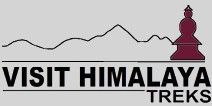- ×
- Company
- Destinations
- Trekking & Hiking
- Off the Beaten Track
- Kanchenjunga Base Camp Trek
- Kanchenjunga Lumba Sumba Pass Trek
- Kanchenjunga Circuit Trek
- Kanchenjunga Yangma Valley Trekking
- Makalu Base Camp Trek 21 Days
- Lumba Sumba Pass Trek
- Makalu Base Camp Sherpani Col Trek
- Rara Upper Dolpo Trek Via GHT Trail
- Rolwaling Tashi Lapcha Pass Trek
- Kanchenjunga to Makalu Base Camp Trek
- Rara Lake Humla Yari Valley Trek
- Upper Dolpo Trek
- Lower Dolpo Trek
- Humla Limi Valley Trek
- Rara Lake Trek
- Mundum Kirat Cultural Trail Trekking
- Annapurna Region Trek
- The Original Annapurna Circuit Trek
- Annapurna Circuit with Tilicho Lake Trek
- Annapurna Base Camp Trek
- Ghorepani Poon Hill Trek
- Mardi Himal Trek
- Upper Mustang Trek
- Annapurna Community Lodge Trek
- Nar Phu Valley Trek
- Nar Phu Annapurna Tilicho Pass Trek
- Nar Phu Teri La Pass Upper Mustang Trek
- Dhaulagiri Circuit Trek
- Jaljala Dhorpatan Trek
- Annapurna Base Camp Helicopter Tour
- Annapurna North Base Camp Trek
- Everest Region Trek
- Everest Base Camp Trek 17 Days
- Everest Base Camp Trekking 14 Days
- Everest Three Passes Trek 22 Days
- Gokyo Lakes Renjo La Pass Trek
- Gokyo Lake Cho La Pass EBC Trek
- Gokyo Lakes Cho Oyu Base Camp Trek
- Everest Panorama Trek
- Everest Luxury Trek
- Pikey Peak Dudhkunda Lake Trek
- Pikey Peak Trekking
- Numbur Cheese Circuit Trek
- Everest Base Camp Chola Pass Gokyo Trek
- Everest Base Camp Trek with Helicopter Return
- Langtang & Ganesh Himal Region
- Manaslu Region Trek
- Off the Beaten Track
- Peak Climbing & Expedition
- Peak Climbing
- Yala Peak Climbing 14 Days
- Mera Peak Climbing Trip 20 Days
- Mera Peak and Island Peak Climbing
- Island Peak Climbing with Everest Base Camp Trek
- Everest Three Peaks Climbing
- Lobuche Peak Climbing with Everest Base Camp Trek
- Nirekha Peak Climbing
- Parchamo Peak Climbing
- Ramdung Peak Climbing
- Larkya Peak Climbing with Manaslu Circuit Trek
- Chulu Far East Peak climbing
- Pisang Peak Climbing
- Naya Kanga Peak Climbing
- Saribung Peak Climbing
- Bokta Peak Climbing
- Norbu Kang Peak Climbing
- Expeditions
- Peak Climbing
- Tours & Sightseeing
- Adventure Activities
- Jungle Safari Package
- Chitwan National Park 3N 4D Budget Tour
- Chitwan National Park Tour
- Bardia National Park Tour
- Chitwan National Park 2N 3D Luxury Tour
- Chitwan National Park 3N 4D Luxury Tour
- Chitwan National Park 4N 5D Luxury Tour
- Chitwan Tiger Tops Safari 3N 4D Tour
- Chitwan National Park 2N 3D Budget Tour
- Chitwan National Park 4N 5D Budget Tour
- Bardiya National Park 2N 3D Tour
- Bardiya National Park 3N 4D Tour
- Bardiya National Park 4N 5D Tour
- Day Hike in Nepal
- More Activities
- Luxury Holidays

